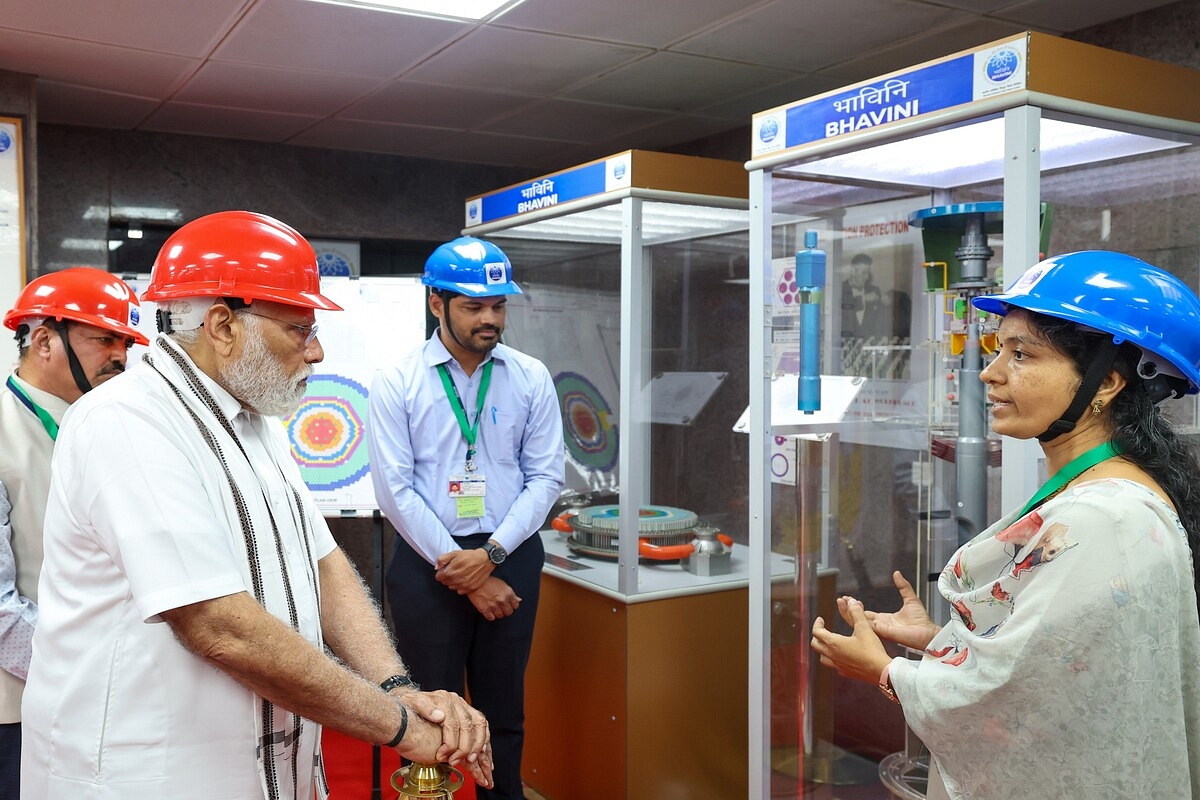News Brief
PM Modi Witnesses Commencement Of India's First Indigenous Fast Breeder Reactor Near Chennai: Here's All You Need To Know

PM Modi at India’s first and totally Indegenous fast breeder reactor at Kalpakkam. Source: X/ @narendramodi
In a significant development for India's nuclear energy program, Prime Minister Narendra Modi on Monday (4 March) observed the commencement of "core loading" at the country's first indigenous Fast Breeder Reactor (500 MWe) in Kalpakkam, located approximately 70 km from Chennai.
The Fast Breeder Reactor (FBR) will initially use the Uranium-Plutonium Mixed Oxide (MOX) fuel.
The Uranium-238 “blanket” surrounding the fuel core will undergo nuclear transmutation to produce more fuel, thus earning the name ‘Breeder’.
During his visit, Prime Minister Modi toured the reactor vault and the control room, where he received detailed briefings on the reactor's key features and functionalities.
The construction and operation of the Prototype Fast Breeder Reactor (PFBR) have been undertaken by Bhartiya Nabhikiya Vidyut Nigam Ltd. (BHAVINI).
It's also noteworthy that, India will be the second country after Russia to have commercially operating Fast Breeder Reactor.
The PFBR has been fully designed and constructed indigenously by BHAVINI with significant contributions from more than 200 Indian industries including MSMEs.
Regarding safety, the PFBR boasts advanced third-generation features, ensuring a rapid and secure shutdown in emergencies.
Furthermore, the reactor significantly reduces nuclear waste generation by utilising spent fuel from the first stage, thereby minimising the need for large-scale disposal facilities.
"As a responsible nuclear power with advanced technology, India remains committed to expand peaceful applications of nuclear technology, both in the power and non-power sector, while ensuring the security of nuclear and radiological materials," said the official statement.
Support Swarajya's 50 Ground Reports Project & Sponsor A Story
Every general election Swarajya does a 50 ground reports project.
Aimed only at serious readers and those who appreciate the nuances of political undercurrents, the project provides a sense of India's electoral landscape. As you know, these reports are produced after considerable investment of travel, time and effort on the ground.
This time too we've kicked off the project in style and have covered over 30 constituencies already. If you're someone who appreciates such work and have enjoyed our coverage please consider sponsoring a ground report for just Rs 2999 to Rs 19,999 - it goes a long way in helping us produce more quality reportage.
You can also back this project by becoming a subscriber for as little as Rs 999 - so do click on this links and choose a plan that suits you and back us.
Click below to contribute.
Latest